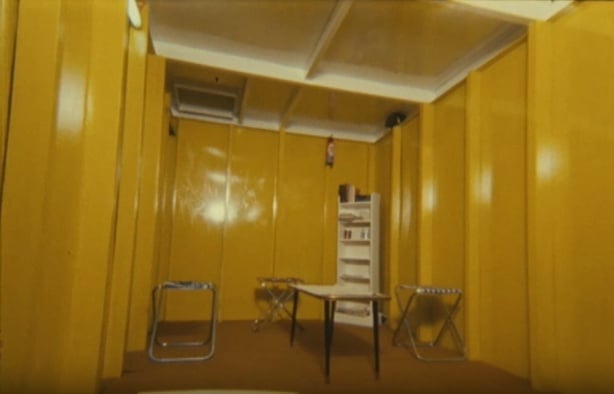At a time of concern over a nuclear apocalypse, a Kildare company is manufacturing underground shelters.
A Civil Defence exercise taking place in March is designed to check the organisation's capability in the event of a nuclear alert.
The general public, for the first time in fifteen years, are being reminded about the very real danger of a nuclear holocaust.
Nuclear Defences Ltd is a small engineering firm in Straffan, Kildare. Run by the Prenderville family, the company designs and manufactures shelters offering protection in the event of a nuclear disaster. The shelters house a family of up to eight people or five adults with space to store enough food for up to 30 days. After this, radiation levels should have dropped to a safe level.
The cost of a nuclear shelter is around £3,000. Pat Prenderville explains what a buyer gets for their money. The package includes a full fit-out with a Geiger counter, fire extinguisher and a filter system to remove bacteria and viruses from the air. There is also a preliminary filter to deal with the fallout dust and a carbon filter to remove toxic gases. The shelter is buried three feet below ground level and offers an accessible place to escape to in the event of an accident.
It can be used for chemical or biological warfare.
Each shelter has been fitted with a specially designed neutron hatch to keep out radiation.

Measuring 14ft by 7ft, the shelter includes an ionisation unit that controls the balance of positive and negative ions in the atmosphere. This can help to reduce anxiety levels and create mental alertness. Ionisation units are used in the cockpits of aeroplanes and on space flights. Tinned food is stored in compartments under the floor. The shelter has a chemical toilet which is concealed behind a curtain. While this shelter does not have any built-in sleeping accommodation, sleeping bags are recommended.
For £3,000, you're getting a system which will protect you from biological, chemical and nuclear warfare.
A Department of Defence film produced in 1968 on nuclear fallout entitled 'Dangerous Dust' recommends that every Irish home should contain a copy of 'Bás Beatha' a booklet with advice to help people survive.
This episode of 'Week Out' was broadcast on 21 March 1980. The reporter is Pat Kenny.























